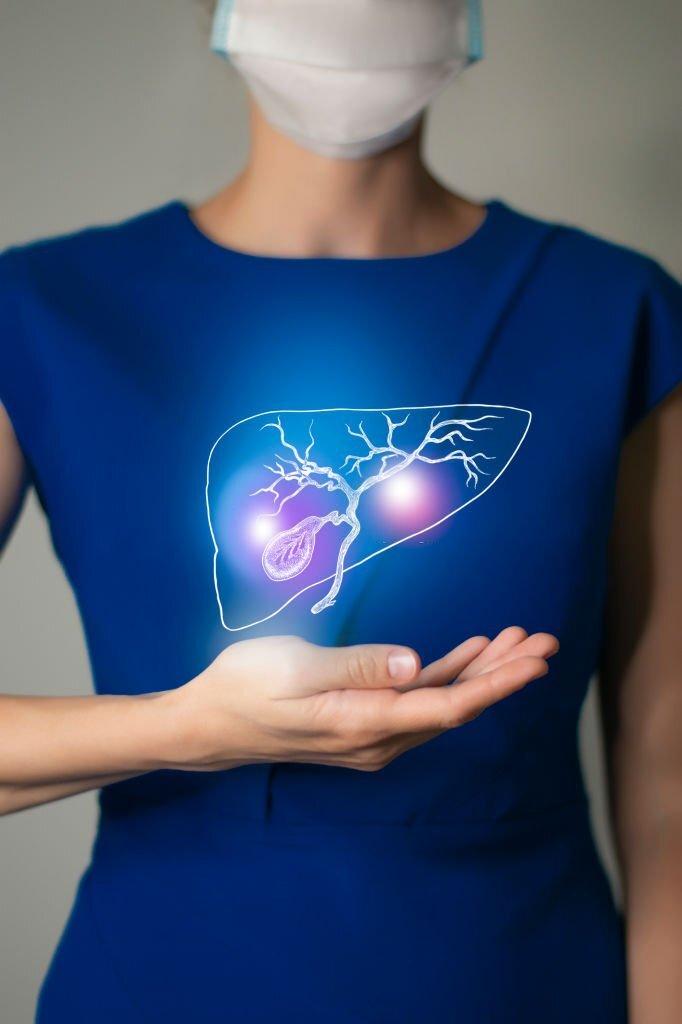L Methyl Folate 15mg Plus Methyl B12 Cofactor – Organic, Berry Flavor, Professional Strength, Liquid Sublingual, Active 5-MTHF Form - Supports Mood, Homocysteine Methylation, Cognition (1oz)
$21.99 (as of April 18, 2024 03:07 GMT +00:00 - More infoProduct prices and availability are accurate as of the date/time indicated and are subject to change. Any price and availability information displayed on [relevant Amazon Site(s), as applicable] at the time of purchase will apply to the purchase of this product.)Gallbladder surgery, also known as cholecystectomy, is a common procedure performed to remove the gallbladder. While it is generally a safe and effective treatment for various gallbladder conditions, some patients may experience digestive issues after the surgery. Two common problems that can occur are bile reflux and acid reflux. In this article, we will explore these conditions and provide insights into their causes, symptoms, and management.
1. Introduction
Gallbladder surgery is a procedure performed to remove the gallbladder, typically due to the presence of gallstones or other gallbladder-related issues. While the surgery effectively resolves these problems, some patients may develop digestive complications such as bile reflux and acid reflux.
2. Understanding Bile Reflux
Bile reflux occurs when bile, a digestive fluid produced by the liver, flows backward into the stomach and esophagus. Normally, the sphincter at the top of the stomach prevents bile from entering these areas. However, after gallbladder surgery, this sphincter may become weakened or malfunction, leading to the backward flow of bile.
3. Causes of Bile Reflux
The exact cause of bile reflux after gallbladder surgery is not fully understood. However, several factors may contribute to its development. These include:
- Surgical complications affecting the sphincter function
- Altered anatomy of the digestive system post-surgery
- Delayed gastric emptying
- Increased pressure in the abdominal area
- Use of certain medications
4. Symptoms of Bile Reflux
Patients experiencing bile reflux may encounter various symptoms, such as:
- Heartburn
- Nausea or vomiting
- Abdominal pain or discomfort
- Bitter taste in the mouth
- Excessive belching
- Hoarseness or sore throat
5. Diagnosis of Bile Reflux
To diagnose bile reflux, medical professionals may perform the following tests:
- Upper endoscopy: This procedure allows the doctor to examine the esophagus and stomach and identify any abnormalities caused by the backward flow of bile.
- Ambulatory acid (pH) monitoring: A small tube is inserted through the nose into the esophagus to measure acid levels and identify reflux episodes.
- Imaging tests: X-rays or other imaging techniques may be used to visualize the anatomy of the digestive system and detect any structural issues.
6. Treatment Options for Bile Reflux
Treatment for bile reflux aims to reduce symptoms and manage the condition effectively. Some common approaches include:
- Medications: Acid-suppressing medications, such as proton pump inhibitors (PPIs) and H2 blockers, can help reduce the production of stomach acid and alleviate symptoms.
- Ursodeoxycholic acid (UDCA): This medication can improve bile flow and reduce irritation in the digestive system.
- Lifestyle changes: Avoiding trigger foods, maintaining a healthy weight, and elevating the head while sleeping can provide relief from bile reflux symptoms.
- Surgical intervention: In severe cases, surgery may be recommended to repair the sphincter or correct any anatomical abnormalities.
7. Understanding Acid Reflux
Acid reflux, also known as gastroesophageal reflux disease (GERD), occurs when stomach acid flows back into the esophagus. After gallbladder surgery, the absence of the gallbladder can impact the normal digestion process, leading to an increased risk of acid reflux.
8. Causes of Acid Reflux After Gallbladder Surgery
The causes of acid reflux after gallbladder surgery are similar to those of bile reflux. Factors that can contribute to acid reflux include:
- Weakened or dysfunctional lower esophageal sphincter (LES)
- Changes in the digestive system anatomy
- Delayed gastric emptying
- Increased pressure on the stomach
- Use of certain medications
9. Symptoms of Acid Reflux After Gallbladder Surgery
Patients experiencing acid reflux after gallbladder surgery may present with the following symptoms:
- Heartburn
- Regurgitation
- Chest pain
- Difficulty swallowing
- Chronic cough or hoarseness
- Asthma-like symptoms
10. Diagnosis of Acid Reflux After Gallbladder Surgery
To diagnose acid reflux after gallbladder surgery, healthcare professionals may employ the following methods:
- Upper endoscopy: This procedure allows visualization of the esophagus and stomach, helping identify any signs of acid reflux-related damage.
- Ambulatory acid (pH) monitoring: This test measures the levels of acid in the esophagus over a 24-hour period to confirm the presence of acid reflux.
- Esophageal manometry: This test evaluates the strength and coordination of the esophagus muscles, helping identify any motility issues.
11. Treatment Options for Acid Reflux After Gallbladder Surgery
Treating acid reflux after gallbladder surgery involves a combination of lifestyle modifications and medications. Some common treatment options include:
- Medications: Proton pump inhibitors (PPIs), H2 blockers, and antacids can help reduce stomach acid production and relieve symptoms.
- Dietary changes: Avoiding trigger foods, such as spicy or fatty foods, caffeine, and alcohol, can help prevent acid reflux episodes.
- Weight management: Maintaining a healthy weight can reduce pressure on the stomach and lower the risk of acid reflux.
- Elevation while sleeping: Raising the head of the bed by a few inches can help prevent acid from flowing back into the esophagus.
12. Prevention Tips
To reduce the risk of developing bile reflux and acid reflux after gallbladder surgery, consider the following preventive measures:
- Follow post-surgery dietary guidelines provided by your healthcare provider.
- Avoid consuming large meals and instead opt for smaller, more frequent meals.
- Maintain a healthy weight through regular exercise and a balanced diet.
- Limit the intake of fatty and greasy foods.
- Avoid smoking and excessive alcohol consumption.
13. Lifestyle Changes for Managing Reflux
Making certain lifestyle changes can significantly improve the management of bile reflux and acid reflux after gallbladder surgery. Some recommended adjustments include:
- Eat smaller, more frequent meals to avoid overloading the digestive system.
- Avoid lying down immediately after meals.
- Maintain an upright posture during and after eating.
- Wear loose-fitting clothing to reduce abdominal pressure.
- Manage stress levels through relaxation techniques, exercise, or therapy.
14. Dietary Recommendations
Following a proper diet can alleviate symptoms and minimize the occurrence of bile reflux and acid reflux after gallbladder surgery. Consider the following dietary recommendations:
- Consume a high-fiber diet rich in fruits, vegetables, and whole grains.
- Limit the intake of fatty and greasy foods.
- Avoid spicy foods, citrus fruits, and tomatoes, as they can trigger reflux symptoms.
- Stay hydrated by drinking an adequate amount of water throughout the day.
- Consider incorporating foods with natural antacid properties, such as ginger and oatmeal.
15. Conclusion
Bile reflux and acid reflux can occur after gallbladder surgery due to changes in the digestive system. It is essential to recognize the symptoms and seek medical attention for proper diagnosis and treatment. By implementing lifestyle modifications, following dietary recommendations, and considering medical interventions, individuals can effectively manage these conditions and improve their quality of life after gallbladder surgery.
FAQs (Frequently Asked Questions)
- Can bile reflux and acid reflux occur simultaneously after gallbladder surgery? Yes, it is possible to experience both bile reflux and acid reflux following gallbladder surgery. The absence of the gallbladder can disrupt the normal digestive process, leading to the occurrence of both conditions.
- Are there any long-term complications associated with bile reflux and acid reflux after gallbladder surgery? If left untreated, bile reflux and acid reflux can cause complications such as esophageal inflammation, ulcers, strictures, and Barrett’s esophagus. Seeking timely medical intervention is crucial to prevent these complications.
- How long do bile reflux and acid reflux symptoms typically last after gallbladder surgery? The duration of symptoms can vary from person to person. In most cases, symptoms gradually improve within a few weeks to months after surgery, especially with appropriate treatment and lifestyle modifications.
Dr. Ahmed Raza, a renowned gastroenterologist with over 20 years of experience, is the dedicated founder of LifeWithNoGallbladder. With a passion for improving gallbladder health, Dr. Raza shares extensive insights, records, and guidance through his blog, providing individuals with the necessary information to make informed decisions.










